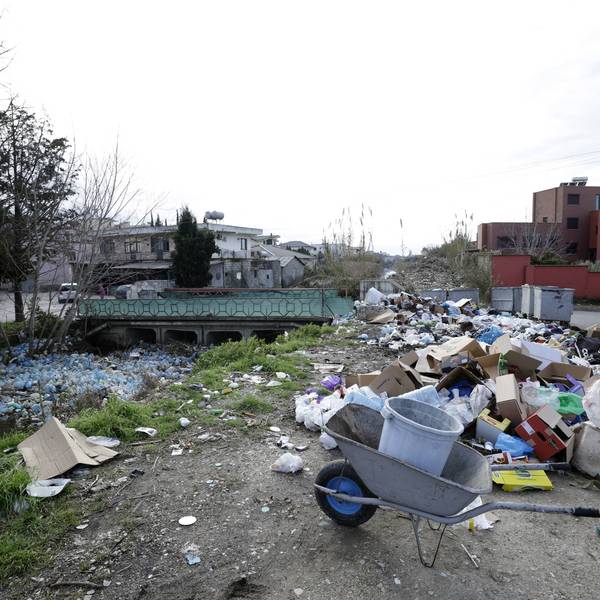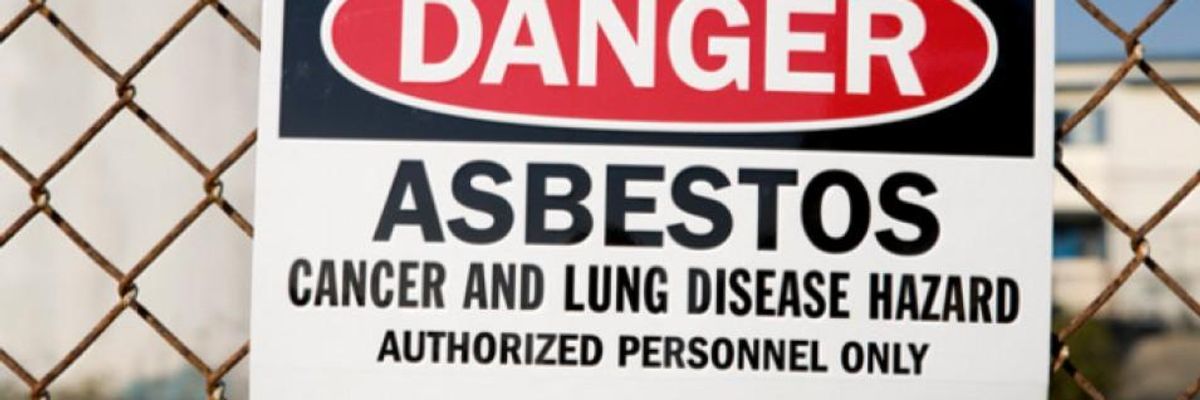Four years ago this week, Congress and President Obama took a critical step towards protecting the health and safety of every American when they overhauled and strengthened the Toxic Substances Control Act (TSCA).
Originally passed in 1976, TSCA had failed miserably to protect the public from unsafe chemicals. Nowhere was this failure more glaring than in EPA's multi-year but ultimately unsuccessful push to ban asbestos in the late 190s. EPA's inability to remove this lethal chemical from commerce became the poster child for the need to reform and strengthen TSCA. When signing the bill into law, President Obama noted TSCA had been, "so burdensome that our country hasn't even been able to uphold a ban on asbestos--a known carcinogen."
In December 2016, shortly after the passage of the new law, EPA selected ten chemicals, including asbestos, to be reexamined under the newly amended law. We were hopeful a ban on this deadly chemical was imminent. We're still waiting.
The bipartisan promise of TSCA's passage hasn't led to the change we were promised. In the past four years, as we've waited for the EPA to use the new power the law granted them, nearly 160,000 people have died from preventable asbestos-related diseases and the United States continues to import and use hundreds of tons of raw asbestos each year.
Nearly 70 nations around the world have made public health a priority and banned asbestos. As Americans, we deserve the same from our government.
Meanwhile, the Trump EPA has slow-walked what should have been the easiest chemical review process in the nation's history given the worldwide consensus on asbestos' deadly properties. In 2019, the agency introduced a significant new use rule (SNUR) for asbestos. The backlash was immediate. 20,000 critical public commentators told EPA that it wasn't enough--in fact, it was a dangerous deception. While EPA political appointees promoted it as a huge step forward, career scientists were aghast at the limited nature of the rule and the loopholes that left the door open for new sources of asbestos to be put into use in the United States.
EPA also released its Draft Asbestos Risk Evaluation, a required step on the path towards an asbestos ban. Again, EPA dangerously limited the scope of the work. While EPA's risk evaluation concludes that nearly all current forms of asbestos pose unreasonable risks to consumers and workers, the evaluation excluded numerous exposure pathways and asbestos-related diseases. That means it severely understates the risks of asbestos, as documented by their own scientists' internal memos and emails that were shared with The New York Times.
And while the EPA once again failed to protect public health it also used the global coronavirus pandemic to attempt to fast-track its draft evaluation which would have prevented a careful review by scientists and the public. In fact, during the public meeting, experts expressed their shock that EPA failed to evaluate all six asbestos fibers, all asbestos-caused diseases, and all uses. EPA's cherry-picking of asbestos risks will only lead to continued asbestos risks, exposures, and deaths.
In the four years since its bipartisan passage, TSCA has failed to deliver results for the American people because the Trump EPA has made every effort to roll back critical public health protections in favor of chemical industry wish lists. Asbestos is one example, but there are dozens more. It's become clear we can't rely on EPA to do its job. Which is why the task once again falls to Congress.
Nearly 70 nations around the world have made public health a priority and banned asbestos. As Americans, we deserve the same from our government. The bipartisan, bicameral Alan Reinstein Ban Asbestos Now Act of 2019 is currently pending and would do just that. This lifesaving legislation was passed out of the Committee on Energy and Commerce 47-1 and should be immediately moved forward to a vote by the full House.
Four years ago, we thought we were on the verge of a huge public health victory. But we've only been disappointed since. It is time to implement TSCA the way it was meant to be implemented when Congress passed it in 2016. And if EPA won't act, Congress must.




